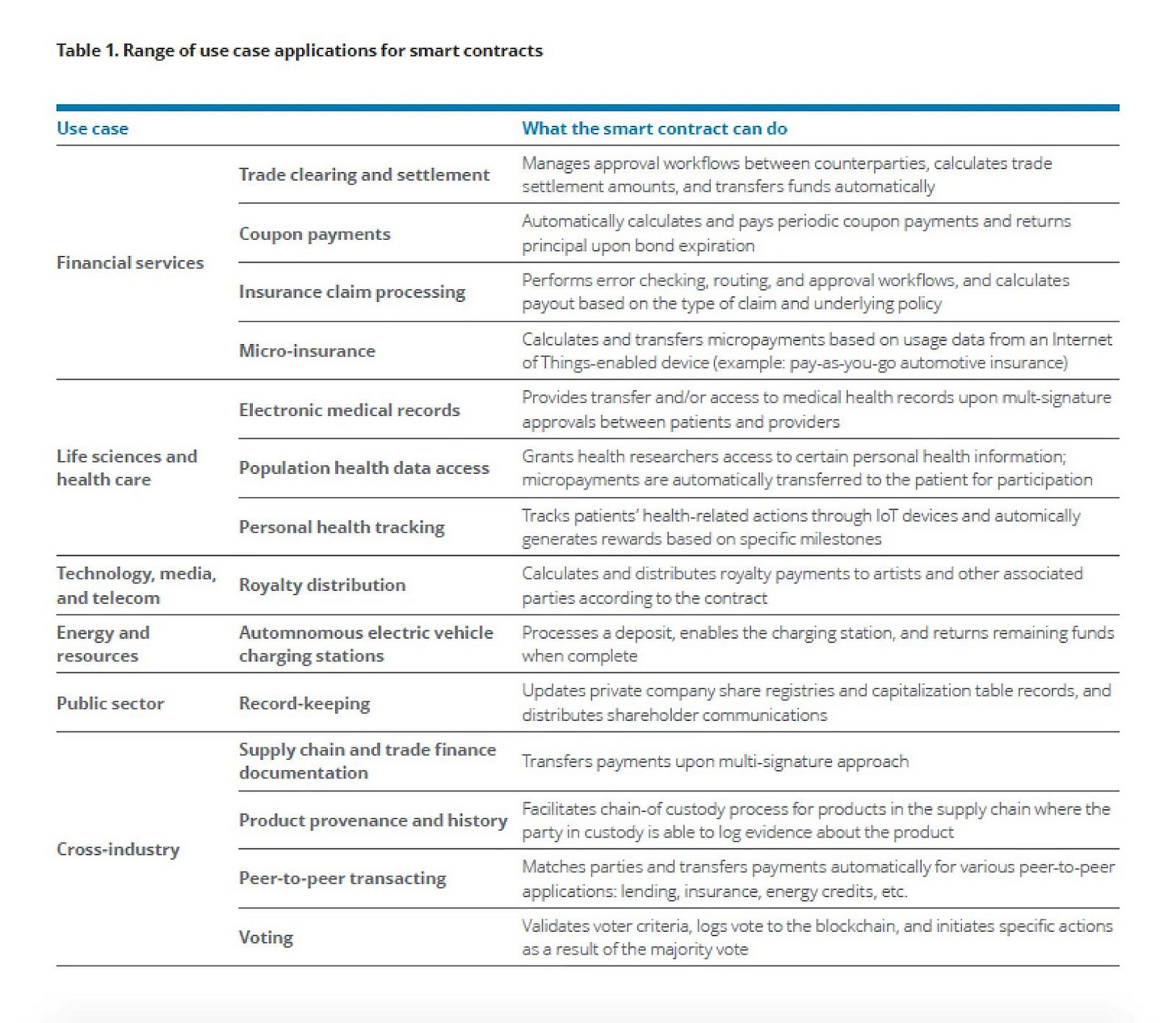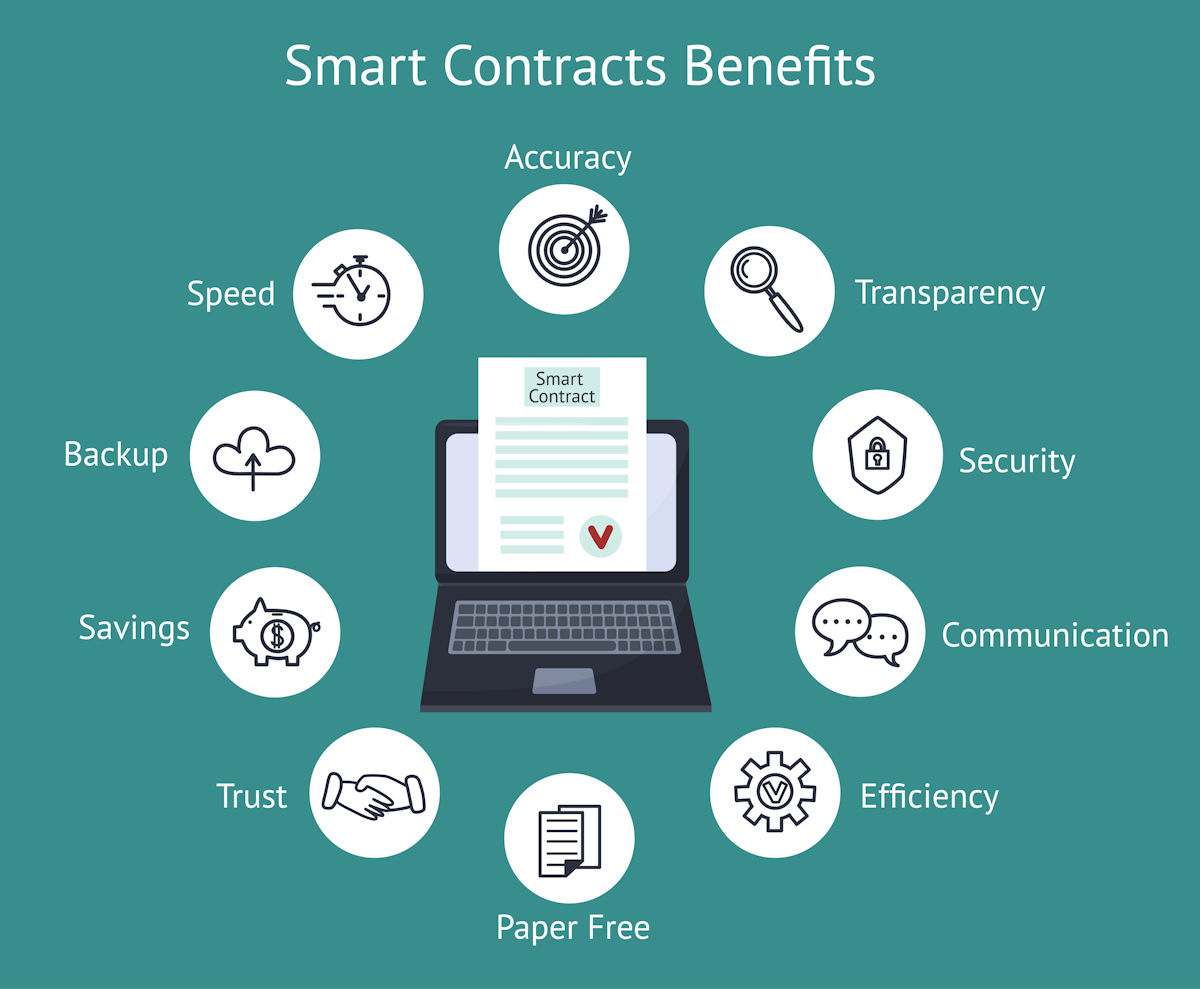#DefiFridays: Everything you need to know about Smart contracts
First phones and houses, now contracts. What's the next smart thing?
Welcome to the month of the merge!
We will be continuing #DefiFridays with this article on Smart contracts. In web3’s typical way, think of smart contracts as a way to cut out the middle man in an agreement so execution can be free of human interference. In this article, we’ll be discussing what they are, how they work, and popular use cases.
Meanwhile, Faces spaces are back!
By 7PM WAT, we’ll discuss DeFi Airdrops and how to use them to build your portfolio!
Have a great weekend 💛
What is a Smart Contract?
A smart contract is a specific kind of contract that uses computer code, runs on a blockchain, and activates when a certain agreement is reached.
Smart contracts are a set of rules written in code and stored on the blockchain. They enable transactions to run automatically with the aid of a computer program. This eliminates the need for any kind of human involvement.
Developers design smart contracts using the primary programming language for Ethereum, Solidity. Smart contracts are self-executing and do not need intervention from a third party. In contrast, traditional contracts between two parties are usually enforced by different intermediaries.
How Smart Contracts work
A smart contract works like a protocol that executes the terms of an agreement. The protocol contains computer code in Solidity, Serpent, LLL, or other programming languages.
The Ethereum blockchain system is the most popular framework to create and deploy smart contracts. Ethereum has enabled the deployment and execution of over 2,700 decentralized applications (DAPPs).
Being self-executing contracts, the terms of the agreement between buyer and seller is written into lines of code.
Once you deploy a smart contract, it becomes impossible to alter it or change any parameters. So, a lot of thought, research, and rigorous planning go into its development. Extensive testing and backtesting are also carried out before it goes live.
Additionally, it undergoes an audit by smart contract auditors like Certik and Hacken. Smart contract audit aids developers to identify and address vulnerabilities in the code. These errors include critical ones, that when exploited can result in a loss of a large volume of assets.
Popular Use Cases of Smart Contracts
Smart contracts are digital agreements that are executed by the blockchain. They are a way of making sure that each party in the agreement gets what they agreed to. A smart contract is not a new concept, it has been in use for decades in computer science. But, with blockchain technology, it has become more practical to use them on a larger scale.
You can create a smart contract for two major purposes:
- To exchange digital assets like cryptocurrency or
- To automate a process such as paying employees, issuing a loan e.t.c.
Due to the efficiency they offer, there are many use cases for smart contracts. You can use them to create agreements between two parties, to create a digital currency, or even to create an autonomous organization
What they can do:
1. They can help to automate tasks like payment, execution, or storage of data.
2. You can deploy a smart contract for crowdfunding campaigns and other types of fundraising.
3. Smart contracts are vital to cryptocurrency transactions. They are the functional unit of automation in dApps and blockchain technology.
4. The most popular use case for smart contracts is ICOs (Initial Coin Offerings).
5. You can also find the use of smart contracts on mint webpages for NFTs.
Features of a smart contract
Every smart contract might contain different lines of codes, algorithms or programming language. But, they all have the following characteristics:
Smart contracts are self-verifying due to automated processes
They are secured using cryptography which makes it difficult for existing records to be altered.
They run on a transparent network as anyone can see what the smart contract is, and what it's used for.
When a condition is satisfied, the contract is immediately carried out. Since they are digital contracts, there is no paperwork to complete or delay in transactions. This eliminates the time spent to correct errors that might arise when filling out forms.
Key benefits of smart contracts
The Future of Smart Contracts
Currently, we use smart contracts with transactions that involve the exchange of digital assets. You can also find them in special financial services that run on a blockchain.
Soon, smart contracts will become more common as people get more familiar with and confident in blockchain technology.
It's odd that many critics vow to never use a blockchain environment for these kinds of legal agreements. Some give reasons for the insecurity of blockchain technology. However, they fail to take into account that the common IT systems used by banks, brokerage firms, or savings and loans are as prone to error and hacking.
What types of contracts and transactions may smart contracts regulate? Blockchain systems can and will protect and control almost any financial activity. This includes transactions involving loans, insurance, investments, renting, gambling, and sales.
As blockchain technology and web3 change the world, the possibilities are endless.




